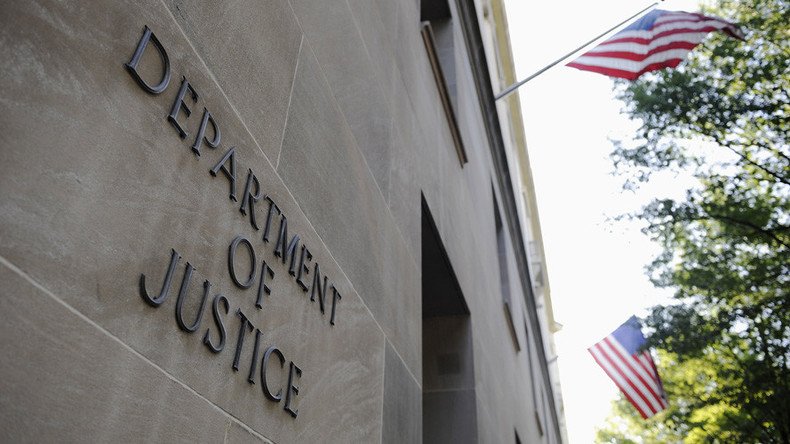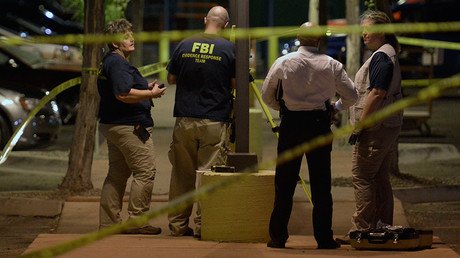Sanctuary cities won’t qualify for federal crime-fighting aid, DOJ says

Cities and counties seeking federal help in fighting violent crime will have to show they will not shelter illegal immigrants, the Department of Justice has said. The DOJ also plans to withhold over $30 million in grants to “sanctuary” jurisdictions.
On Thursday, the DOJ sent a letter to four jurisdictions that have expressed an interest in the department’s Public Safety Partnership (PSP) program ‒ San Bernardino and Stockton in California; Albuquerque, New Mexico and Baltimore, Maryland ‒ asking the quartet to demonstrate how it intends providing the Department of Homeland Security (DHS) and immigration authorities access to immigrants in their custody.
NEW: DOJ announces four cities that want to be part of a crime reduction program must prove they are are not sanctuary cities pic.twitter.com/XGIySxtTa9
— kelly cohen (@politiCOHEN_) August 3, 2017
The jurisdictions need to show “a statute, rule, regulation, policy, or practice” ensuring that DHS has access to jails or prisons where “an alien (or an individual believed to be an alien)” is being held, provide at least 48 hours advance notice before an alien is released, and honor written requests from the DHS to hold foreign nationals for up to 48 hours beyond the scheduled release date.
The deadline for the information is August 18.
“By protecting criminals from immigration enforcement, cities and states with so-called 'sanctuary' policies make all of us less safe,” Attorney General Jeff Sessions said in a statement. "By forcing police to go into more dangerous situations to re-arrest the same criminals, these policies endanger law enforcement officers more than anyone. The Department of Justice is committed to supporting our law enforcement at every level, and that’s why we're asking 'sanctuary' jurisdictions to stop making their jobs harder.”
Sanctuary policies are “driven by politics and do not protect their citizens,” Sessions added. “We will fight them with every lawful tool available.”
The DOJ describes the PSP as a “training and technical assistance program” intended to improve the capabilities of local jurisdictions to fight violent crime. The first twelve jurisdictions received federal aid under the program in June.
Last month, Sessions repeated his determination to withhold millions in federal law enforcement grants to cities and counties with “sanctuary” policies, citing specifically those that deny Immigration and Customs Enforcement (ICE) access to prisoners.
The Byrne Justice Assistance Grants (JAG) are the state, local, and tribal authorities’ largest source of federal funding for criminal justice. Sanctuary jurisdictions received $32.7 million in these grants in 2016, reported the conservative Heritage Foundation, citing DOJ records.
If they maintain their current sanctuary policies, New York City, Los Angeles, Philadelphia and Cook County, Illinois (where Chicago is located) will all be disqualified from Byrne JAGs.













